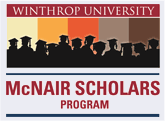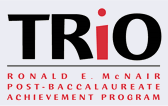Mentor
Sherell Fuller, Ph.D.
Major
Music Education
College
College of Visual and Performing Arts
Keywords
First Generation College Students, Low-Income College Students, Federal TRiO Program
Abstract
Twenty-four percent of undergraduates in the US are considered first-generation and low-income (Engle & Tinto, 2008), while TRiO student support services serve less than 5% of these students (Mortenson, 2011). Previous research reveals that these students are less prepared for collegiate-level academic rigor, have fewer financial resources, and have less cultural and social capital compared to their non-first-generation and non-low-income peers (Engle & Tinto, 2008; Chen & Carroll, 2005; Engle, 2007, Willet 1989). Based on their testimonies, are there specific challenges that first-generation, low-income students are currently experiencing while navigating higher education in 2018? How can these testimonies inform the development of support services for these students? This study explores the financial, social, and academic domains first-generation, low-income students traverse while also examining the existing systems that support them. Participants were recruited through the university’s TRiO program as well as word of mouth. Seven upperclassmen and one recent graduate who are considered first-generation and low-income from a Southeastern liberal arts university participated in 60-minute semi-structured interviews. Data were analyzed using Saldaña’s (2013) method of qualitative coding. Emerging themes of work-life balance and cultural and social capital are discussed. These findings reveal areas of support that could be built upon for the institution in question as well as other similar institutions.
Recommended Citation
Barkley, Frances "Ana"
(2019)
"Invisible Barriers: Experiences of First-Generation College Students Navigating Academia,"
The Winthrop McNair Research Bulletin: Vol. 5, Article 5.
Available at:
https://digitalcommons.winthrop.edu/wmrb/vol5/iss1/5
Included in
Educational Assessment, Evaluation, and Research Commons, Scholarship of Teaching and Learning Commons


